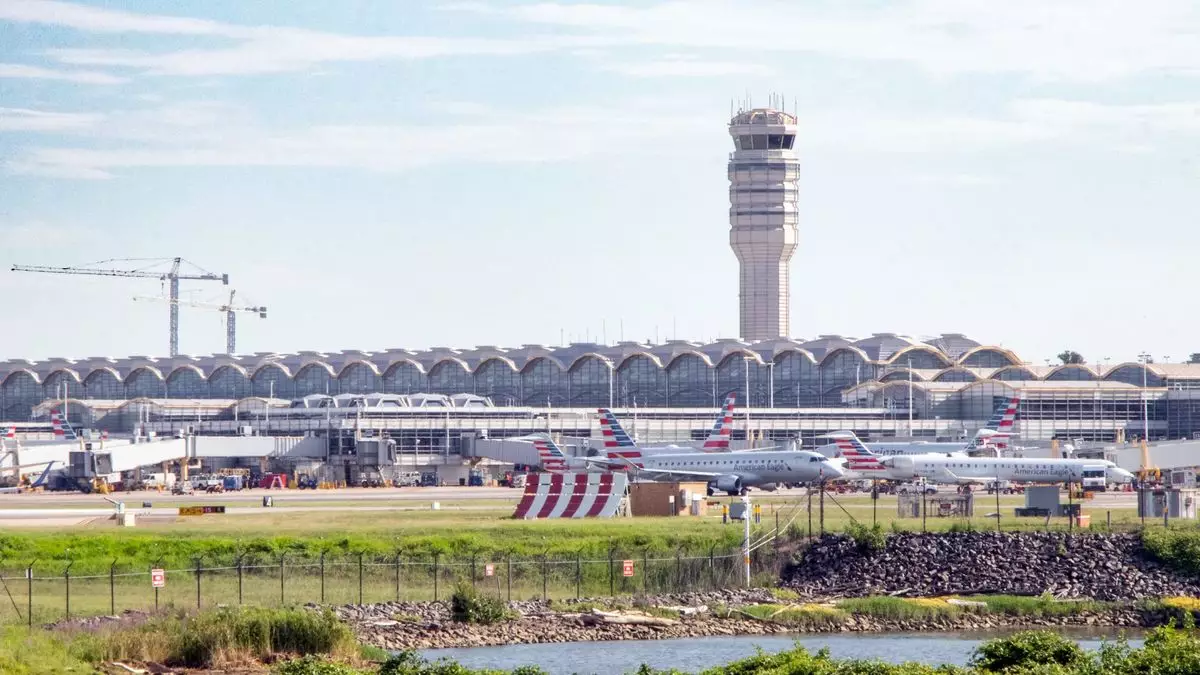In a notable move, the Department of Transportation (DOT) has provisionally allocated five coveted daily slot pairs for destinations beyond Washington Reagan National Airport’s established 1,250-mile perimeter. The DOT’s recent order marks a decisive action in reshaping flight operations from one of America’s busiest airports. Airlines that secured these slot pairs include Alaska Airlines with a route to San Diego, American Airlines to San Antonio, Delta Air Lines to Seattle, Southwest Airlines to Las Vegas, and United Airlines, which will provide additional flights to San Francisco. This decision arises from the FAA reauthorization legislation enacted earlier this year.
The allocation of these slot pairs heralds a new competitive era for airlines operating from Reagan National. With Alaska Airlines and American Airlines each securing exclusive routes—Alaska to San Diego and American to San Antonio—they stand to enhance their market presence significantly. Meanwhile, Delta Air Lines and Southwest will enter a direct competition with existing airlines on routes from Washington to Seattle and Las Vegas, respectively, signaling a possible fare war that could benefit consumers. United’s second daily flight to San Francisco introduces an additional layer of competition on a critical route, reflecting the broader dynamics of airline operations in a highly regulated environment.
Notably absent from the provisional allocations are JetBlue, Spirit, and Frontier Airlines, which sought to extend their operations to San Juan. The rejection of their applications sheds light on the stringent criteria governing these slots. The DOT determined that Spirit and Frontier were ineligible due to their failure to operate within the perimeter. JetBlue’s position was weakened by its existing monopoly on flights to San Juan from Reagan National. The restrictions of the perimeter rule create a challenging landscape for airlines attempting to penetrate new markets, underscoring the competitive barriers these companies face.
The decision by the DOT is still in a preliminary phase, allowing for objections from other airlines or interested parties within the next two weeks. Once finalized, the airlines awarded the slot pairs will have a 90-day window to launch their new routes. This timeline emphasizes the urgency for airlines to strategize their entry into new markets, particularly against the backdrop of a post-pandemic recovery in air travel.
Additionally, the outcomes of this allocation process highlight the ongoing tension between established operators and those seeking to expand. It raises questions about the future landscape of U.S. air travel, particularly as regulatory frameworks evolve amid changing consumer demands.
The tentative allocation of significant flight slots from Washington Reagan National Airport represents a critical juncture in airline competition and regulatory practices. As existing carriers brace themselves for heightened competition and new entrants navigate the complexities of compliance, the implications of these decisions will resonate throughout the industry. Observers will closely watch the developments of these routes, particularly how they shape airfares, service quality, and ultimately, the choice available to the flying public.


Leave a Reply